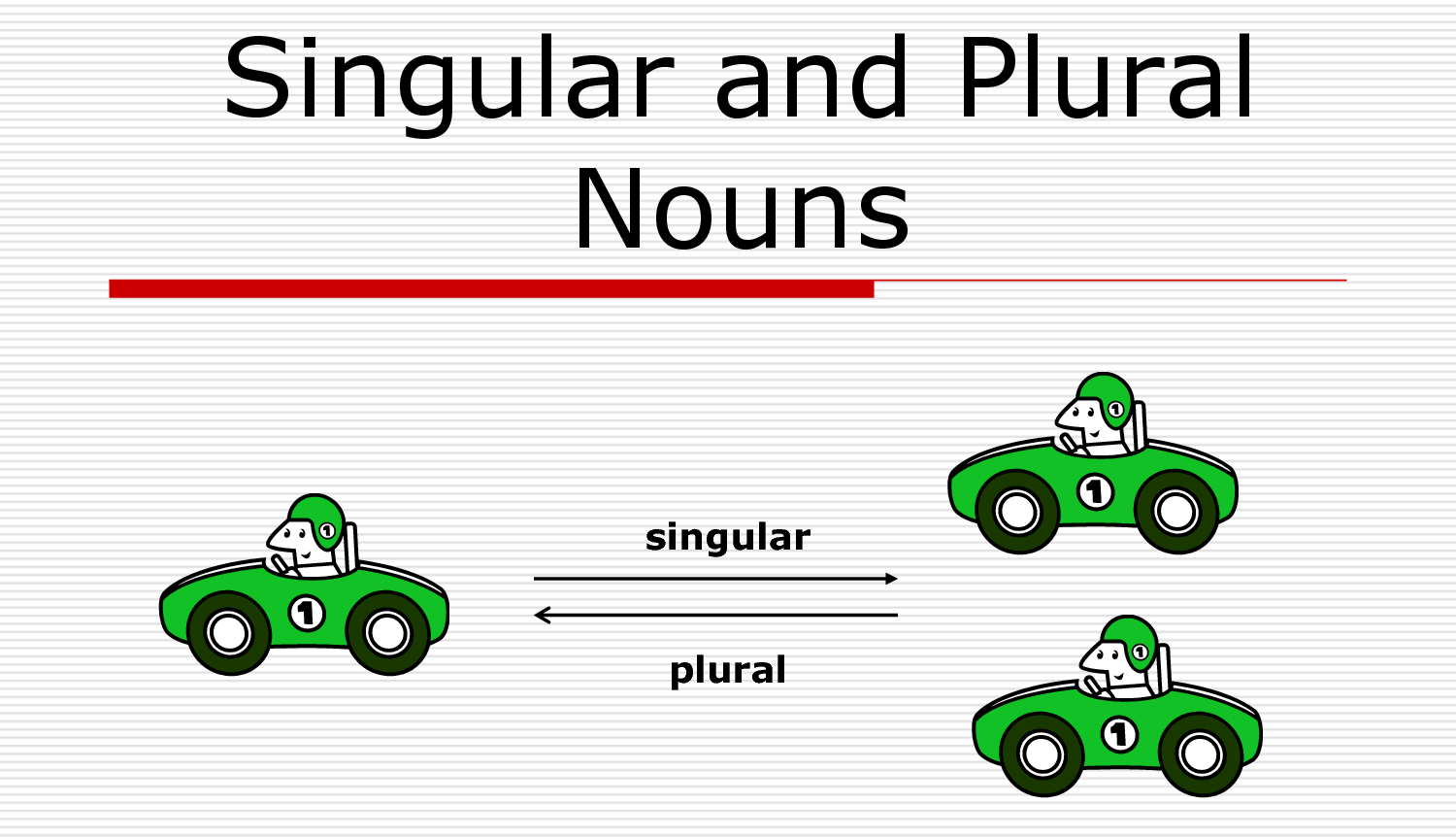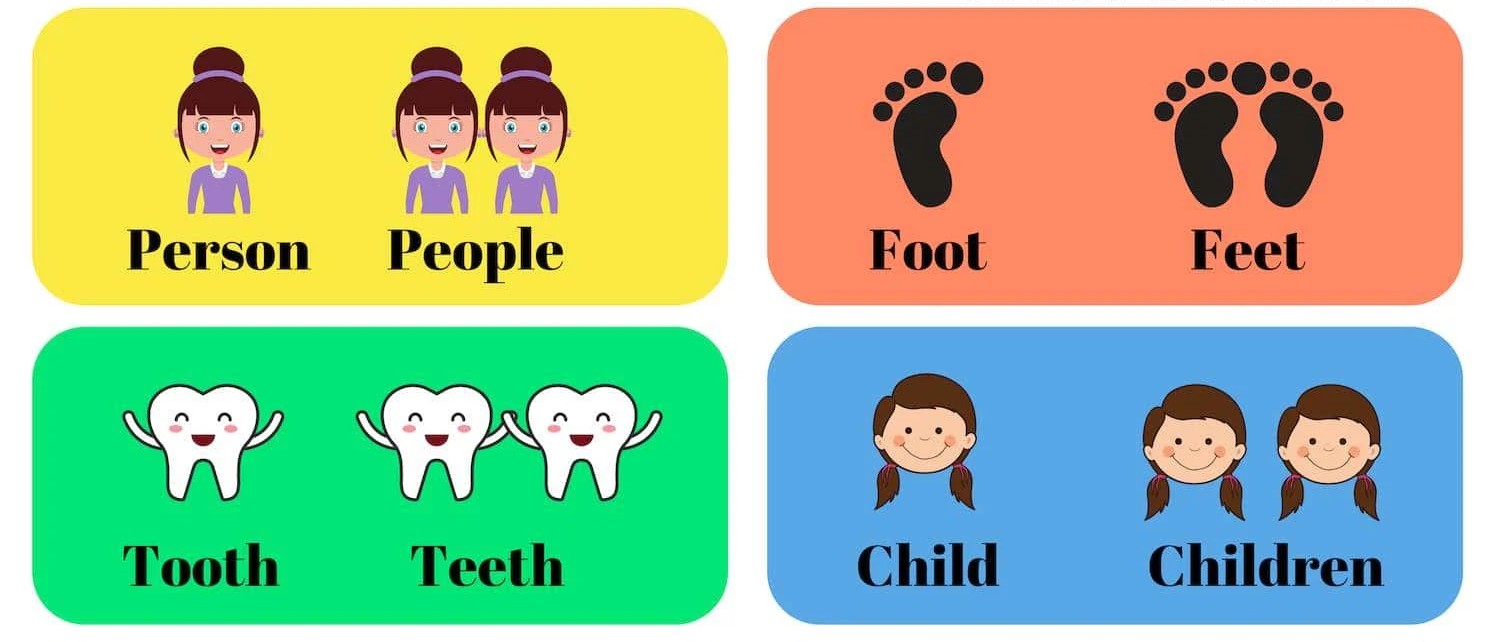One of the most common grammar mistakes in IELTS Writing is the incorrect use of singular and plural nouns. Even advanced English learners often struggle with countable vs. uncountable nouns, subject-verb agreement, irregular plurals, and article usage. These errors can lower your IELTS Writing score, especially in the Grammatical Range and Accuracy criterion.
This article will provide a detailed guide on singular vs. plural usage, common errors, and strategies to improve your writing accuracy. At the end, you’ll find a practice section to test your skills.
Understanding Singular and Plural Nouns
What Are Singular and Plural Nouns?
- A singular noun refers to one person, place, thing, or idea.
✅ A cat, a book, a student, an idea - A plural noun refers to more than one.
✅ Cats, books, students, ideas
While this seems simple, English grammar has many exceptions that often confuse test-takers.

Key Singular vs. Plural Rules
To use singular and plural forms correctly in IELTS Writing, you need to understand:
(i) Countable vs. Uncountable Nouns
Countable nouns have both singular and plural forms.
✅ One apple → Two apples
✅ A car → Several cars
Uncountable nouns do not have a plural form. They refer to things that cannot be counted individually.
❌ Informations
✅ Information
Common Uncountable Nouns:
- Abstract nouns: Advice, knowledge, progress, research
- Substances: Water, air, rice, sugar
- Mass nouns: Furniture, luggage, equipment
✅ How to quantify uncountable nouns?
Use "some," "a lot of," "a piece of," "a little," "a bottle of," "a cup of," etc.
- A piece of information (NOT an information)
- A bottle of water (NOT a water)

(ii) Regular vs. Irregular Plurals
Most nouns form the plural by adding "-s" or "-es".
✅ Book → Books
✅ Bus → Buses
However, some words have irregular plurals that do not follow this rule.
✅ Child → Children
✅ Man → Men
✅ Woman → Women
✅ Tooth → Teeth
✅ Foot → Feet
✅ Mouse → Mice
❌ Common Mistakes with Irregular Plurals
- She has five childs. ❌ → She has five children. ✅
- Two mans were talking. ❌ → Two men were talking. ✅
⚠️ Same Singular and Plural Form
Some nouns have the same singular and plural form.
✅ One sheep → Two sheep
✅ One deer → Three deer
✅ One fish → Many fish
(iii) Subject-Verb Agreement with Singular & Plural Nouns
A singular subject takes a singular verb, and a plural subject takes a plural verb.
✅ The student is studying.
✅ The students are studying.
❌ Common Mistakes
- The book on the table are mine. ❌ → The book on the table is mine. ✅
- My friend like pizza. ❌ → My friend likes pizza. ✅
To find the correct verb, first identify the subject (not the closest noun).
(iv) Collective Nouns: Singular or Plural?
Collective nouns (team, family, government, audience) can be singular or plural, depending on context.
✅ The team is winning. (The team as one unit)
✅ The team are arguing among themselves. (The team as individuals)
Common Collective Nouns & Their Usage
| Collective Noun | Singular Example (as one unit) | Plural Example (as individuals) |
| Team | The team is playing well. | The team are discussing strategies. |
| Family | My family lives in London. | My family are planning their vacations. |
| Government | The government is imposing a new law. | The government are debating among themselves. |
| Committee | The committee has reached a decision. | The committee are arguing over the details. |
| Audience | The audience was quiet during the movie. | The audience are leaving their seats one by one. |
| Police | The police is investigating the case. (❌ Incorrect) | The police are investigating the case. (✅ Correct – "Police" is always plural) |
| Class | The class is studying physics. | The class are working on their own assignments. |
| Jury | The jury has delivered its verdict. | The jury are discussing the evidence. |
British vs. American English Differences
In British English, collective nouns are often treated as plural, especially when referring to groups of people.
✅ The team are playing well. (UK – plural)
✅ The government are discussing new policies. (UK – plural)
In American English, collective nouns are typically singular.
✅ The team is playing well. (US – singular)
✅ The government is discussing new policies. (US – singular)
How Singular vs. Plural Mistakes Affect Your IELTS Score
In IELTS Writing Task 1 and Task 2, incorrect singular/plural usage affects Grammatical Range and Accuracy. Here’s how:
| Band Score | Impact of Singular/Plural Mistakes |
| 7.5 - 9.0 | No or minimal errors, strong control over grammar |
| 6.5 - 7.0 | Few errors, but do not affect understanding |
| 5.0 - 6.0 | Frequent mistakes, sometimes confusing |
| Below 5.0 | Many errors, difficult to understand |
Example:
❌ The informations I received were helpful. (Incorrect)
✅ The information I received was helpful. (Correct)
Making these errors frequently can lower your score to 6.0 or below.
IELTS Writing Practice – Singular vs. Plural
Practice 1: Correct the Mistakes
Identify and correct the singular/plural errors in the following sentences.
- The criteria for selection were very strict.
- She bought two dozens of bananas from the market.
- The police are investigating the matter seriously.
- My friend and colleague always gives me good advice.
- The phenomena of climate change have been widely studied.
- The children in the park were playing football.
- These scissors are not sharp enough to cut paper.
- The committee was divided in its opinion.
- He has many knowledges about artificial intelligence.
- The informations provided in the report was incorrect.
Practice 2: Fill in the Blanks
Choose the correct form (singular or plural) for each sentence.
- The (criteria/criterion) for passing the test is quite challenging.
- Several (phenomenon/phenomena) were observed during the experiment.
- The (faculty/faculties) of this university is well-respected worldwide.
- There are three (loaf/loaves) of bread on the table.
- His (thesis/theses) was praised by the professor.
- I need two (pair/pairs) of socks for my trip.
- The (data/datum) collected from the survey supports our hypothesis.
- A group of (alumnus/alumni) visited their old school last week.
- The (aircraft/aircrafts) took off smoothly despite the storm.
- The (syllabus/syllabi) for next semester has been finalized.
Answers
Practice 1: Corrected Sentences
- ✅ (Correct)
- She bought two dozen bananas from the market.
- ✅ (Correct)
- My friend and colleague always gives me good advice.
- The phenomena of climate change have been widely studied.
- ✅ (Correct)
- These scissors are not sharp enough to cut paper.
- ✅ (Correct)
- He has a lot of knowledge about artificial intelligence.
- The information provided in the report was incorrect.
Practice 2: Correct Answers
- The criterion for passing the test is quite challenging.
- Several phenomena were observed during the experiment.
- The faculty of this university is well-respected worldwide.
- There are three loaves of bread on the table.
- His thesis was praised by the professor.
- I need two pairs of socks for my trip.
- The data collected from the survey supports our hypothesis.
- A group of alumni visited their old school last week.
- The aircraft took off smoothly despite the storm.
- The syllabus for next semester has been finalized.
Complete List of Irregular Plural Nouns in English
Irregular plural nouns do not follow the standard “-s” or “-es” rule. Instead, they change form completely, remain unchanged, or follow unique patterns.
1. Words That Change Vowels
| Singular | Plural |
| Man | Men |
| Woman | Women |
| Tooth | Teeth |
| Foot | Feet |
| Goose | Geese |
| Mouse | Mice |
| Louse | Lice |
2. Words That End in "-f" or "-fe" (Changing to "-ves")
| Singular | Plural |
| Wolf | Wolves |
| Leaf | Leaves |
| Knife | Knives |
| Life | Lives |
| Calf | Calves |
| Half | Halves |
| Loaf | Loaves |
| Thief | Thieves |
| Shelf | Shelves |
Exceptions (No Change to "-ves")
✅ Chief → Chiefs
✅ Roof → Roofs
✅ Proof → Proofs
3. Words That End in "-us" (Changing to "-i") (Latin Origin)
| Singular | Plural |
| Focus | Foci |
| Fungus | Fungi |
| Cactus | Cacti |
| Radius | Radii |
| Stimulus | Stimuli |
| Nucleus | Nuclei |
| Syllabus | Syllabi |
Exceptions
✅ Octopus → Octopuses (or Octopi, but "Octopuses" is more common)
✅ Virus → Viruses (NOT Viri)
4. Words That End in "-is" (Changing to "-es") (Greek Origin)
| Singular | Plural |
| Analysis | Analyses |
| Thesis | Theses |
| Crisis | Crises |
| Basis | Bases |
| Hypothesis | Hypotheses |
| Diagnosis | Diagnoses |
| Oasis | Oases |
| Parenthesis | Parentheses |
5. Words That End in "-on" (Changing to "-a") (Greek Origin)
| Singular | Plural |
| Phenomenon | Phenomena |
| Criterion | Criteria |
| Datum | Data |
Exception
✅ Automaton → Automatons or Automata
6. Words That End in "-um" (Changing to "-a") (Latin Origin)
| Singular | Plural |
| Bacterium | Bacteria |
| Medium | Media |
| Memorandum | Memoranda |
| Curriculum | Curricula |
| Stadium | Stadia (or Stadiums) |
| Forum | Fora (or Forums) |
Commonly Used Exceptions
✅ Album → Albums
✅ Museum → Museums
7. Words That Remain the Same (No Change in Plural Form)
| Singular & Plural |
| Sheep |
| Deer |
| Fish |
| Salmon |
| Trout |
| Bison |
| Aircraft |
| Species |
| Series |
| Moose |
| Swine |
Note:
Fish → "Fishes" is used when referring to different species of fish.
✅ I caught three fish.
✅ The aquarium has many different fishes. (different types)
8. Foreign Borrowed Words With Unique Plurals
| Singular | Plural | Language Origin |
| Alumnus | Alumni | Latin |
| Alumna | Alumnae | Latin |
| Corpus | Corpora | Latin |
| Genus | Genera | Latin |
| Erratum | Errata | Latin |
| Index | Indices (or Indexes) | Latin |
| Matrix | Matrices | Latin |
| Appendix | Appendices (or Appendixes) | Latin |
| Vortex | Vortices | Latin |
| Bureau | Bureaux (or Bureaus) | French |
| Tempo | Tempi (or Tempos) | Italian |
